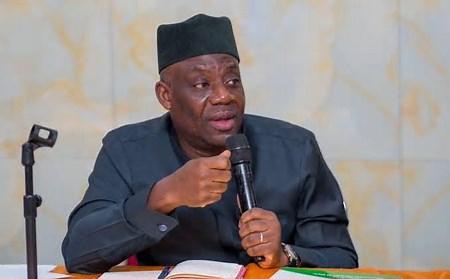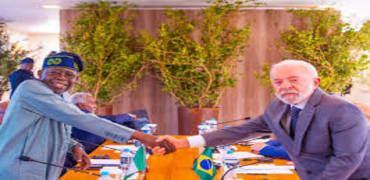FG Moves to Standardise University Fees Nationwide
FG Moves to Standardise University Fees Nationwide
By Achimi Muktar
In a bold move to end confusion and ensure transparency in tertiary education financing, the Federal Government has inaugurated a high-powered committee to harmonise university fee structures across the country.
Minister of Education, Dr. Tunji Alausa, made the announcement on Wednesday during a critical meeting with Vice-Chancellors and officials of the Nigerian Education Loan Fund (NELFUND) in Abuja. The committee—comprising representatives from NELFUND, the Ministry of Education, the National Universities Commission (NUC), and top university administrators—is expected to streamline how Nigerian students are billed and how their loan payments are processed.
According to the Minister, while the government has efficiently disbursed student loans through NELFUND, issues have arisen from poor alignment between universities' billing systems and loan disbursement timelines.
“Universities impose different service charges and communicate fees differently. This creates unnecessary friction and confusion for students,” Dr. Alausa said. “The goal is to make fee structures clear, unified in language, and predictable in timing.”
What Will Change?
The committee has been tasked with creating a transparent and standardised framework for fee nomenclature and timelines. This means:
All mandatory service charges must be disclosed upfront by universities.
Common terms will be adopted across institutions to define fees and charges.
Timelines for student notification and loan disbursement will be published and adhered to.
“The current system is functional but not optimal. We’re working to improve it so both NELFUND and students benefit from a smoother process,” the Minister explained.
A Three-Week Deadline
The committee has just three weeks to deliver its report, after which the finalised guidelines will be released to the public.
Dr. Alausa also took the opportunity to address lingering concerns over alleged corruption in the student loan program. He firmly dismissed rumours of fraud in NELFUND, calling recent media reports “misleading and inaccurate.”
ICPC Clarifies: “No Fraud Detected”
Earlier, the Independent Corrupt Practices and Other Related Offences Commission (ICPC) had sparked controversy by stating that 51 institutions were being investigated for suspicious deductions from student loans. The Commission later walked back its statement, admitting a crucial word—“not”—was mistakenly omitted, which led to a misinterpretation.
NELFUND also clarified that the figures referenced in some media reports were tied to previous education schemes, not the newly launched student loan initiative. It reiterated that all institutional fees are paid directly to schools, while upkeep funds are sent to verified student accounts.
A Step Toward Student-Centric Reform
This move to harmonise fee structures is part of President Tinubu’s broader agenda to simplify and reform Nigeria’s education financing. Dr. Alausa reaffirmed the administration’s commitment to a student-focused funding model that prioritises clarity, accountability, and access.
For millions of students and parents across Nigeria, this development may finally put an end to the era of surprise charges and inconsistent billing practices in higher education. The question now is: Will universities cooperate—or resist change?

















